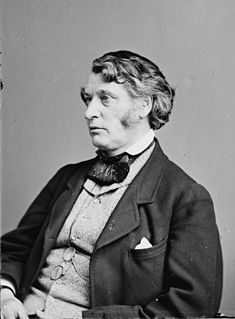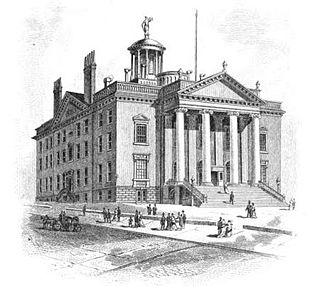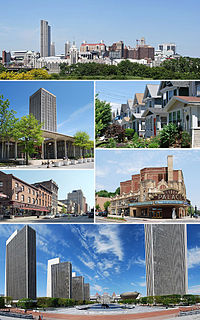| |||||||||||||||||||||||||||||||||
21 of the 62 seats in the United States Senate (with special elections) 32 seats needed for a majority | |||||||||||||||||||||||||||||||||
|---|---|---|---|---|---|---|---|---|---|---|---|---|---|---|---|---|---|---|---|---|---|---|---|---|---|---|---|---|---|---|---|---|---|
| |||||||||||||||||||||||||||||||||
| |||||||||||||||||||||||||||||||||
The United States Senate elections of 1850 and 1851 were elections which had the Democratic Party lose seats, but retain a majority in the United States Senate.

The Democratic Party is one of the two major contemporary political parties in the United States, along with the Republican Party. Tracing its heritage back to Thomas Jefferson and James Madison's Democratic-Republican Party, the modern-day Democratic Party was founded around 1828 by supporters of Andrew Jackson, making it the world's oldest active political party.

The United States Senate is the upper chamber of the United States Congress, which along with the United States House of Representatives—the lower chamber—comprises the legislature of the United States. The Senate chamber is located in the north wing of the Capitol, in Washington, D.C.
Contents
- Results summary
- Change in Senate composition
- Before the elections
- As a result of the elections
- At the beginning of the first session, December 1, 1851
- Race summaries
- Elections during the 31st Congress
- Races leading to the 32nd Congress
- Elections during the 32nd Congress
- Complete list of races
- Massachusetts
- New York
- Ohio
- Pennsylvania
- See also
- References
As this election was prior to ratification of the seventeenth amendment, Senators were chosen by State legislatures.

The Seventeenth Amendment to the United States Constitution established the popular election of United States Senators by the people of the states. The amendment supersedes Article I, §3, Clauses 1 and 2 of the Constitution, under which senators were elected by state legislatures. It also alters the procedure for filling vacancies in the Senate, allowing for state legislatures to permit their governors to make temporary appointments until a special election can be held.

A state legislature in the United States is the legislative body of any of the 50 U.S. states. The formal name varies from state to state. In 25 states, the legislature is simply called the Legislature, or the State Legislature, while in 19 states, the legislature is called the General Assembly. In Massachusetts and New Hampshire, the legislature is called the General Court, while North Dakota and Oregon designate the legislature the Legislative Assembly.









